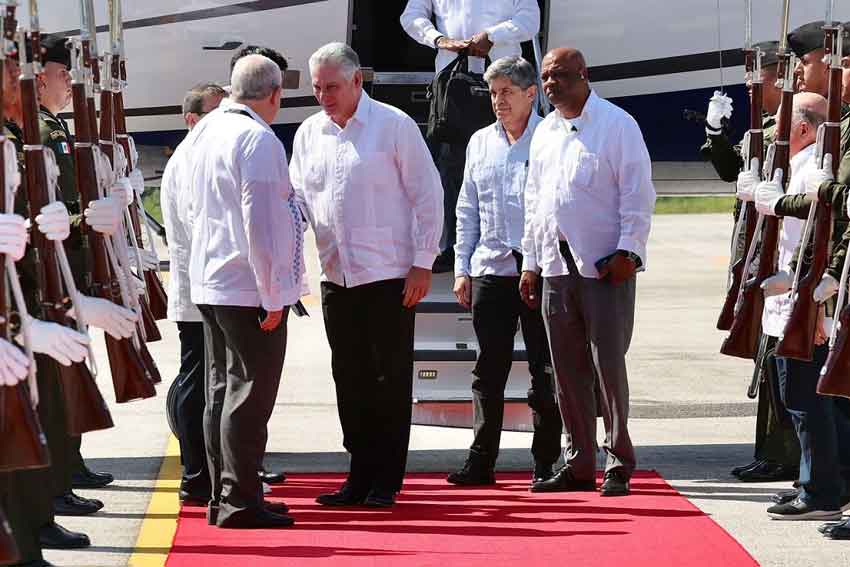
The President of Cuba, Miguel Díaz-Canel Bermúdez, is leading the delegation to the "For a Fraternal Neighborhood with Well-being" Summit today in Palenque, convened by his Mexican counterpart, Andrés Manuel López Obrador.
Foreign Minister Bruno Rodríguez, Deputy FM Carlos Fernández de Cosío, Ambassador Marcos Rodríguez, and other officials are accompanying the Cuban head of state, reported Prensa Latina.
Also present at the meeting are dignitaries, including Gustavo Petro from Colombia, Nicolás Maduro from Venezuela, Xiomara Castro from Honduras, Ariel Henry from Haiti, and their foreign ministers. The other countries, Belize, Ecuador, Guatemala, El Salvador, Costa Rica, and Panama, are represented by their vice presidents and foreign ministers.
López Obrador, who has been staying at his farm in Palenque since yesterday, expressed optimism about the migration meeting. He believes "the Meeting is complete and has high-level representation from all 11 invited nations," which increases the chances of success.
He remembered convening the Palenque meeting to examine proposals and solutions for the humanitarian crisis resulting from migration. He aimed to collaborate with impacted nations of the region.
Addressing the causes of migration is fundamental, as well as assisting people in their places of origin. Migration is a necessity, not a choice. It's important to gather ideas and create an economic and social plan to eliminate dangerous, spontaneous, and uncontrolled migration. This can be achieved through socioeconomic and welfare programs that retain potential migrants in their homelands.
The Chief Executive announced that after the meeting in the archaeological zone of Palenque, the foreign ministers and invited leaders will provide their opinions on the issue to the media.
The host president made the call on the 9th during his usual morning press conference because of an increase in the migratory flow and the few possibilities of a solution to the crisis due to the economic situation of the sending countries to encourage their citizens not to abandon them.





